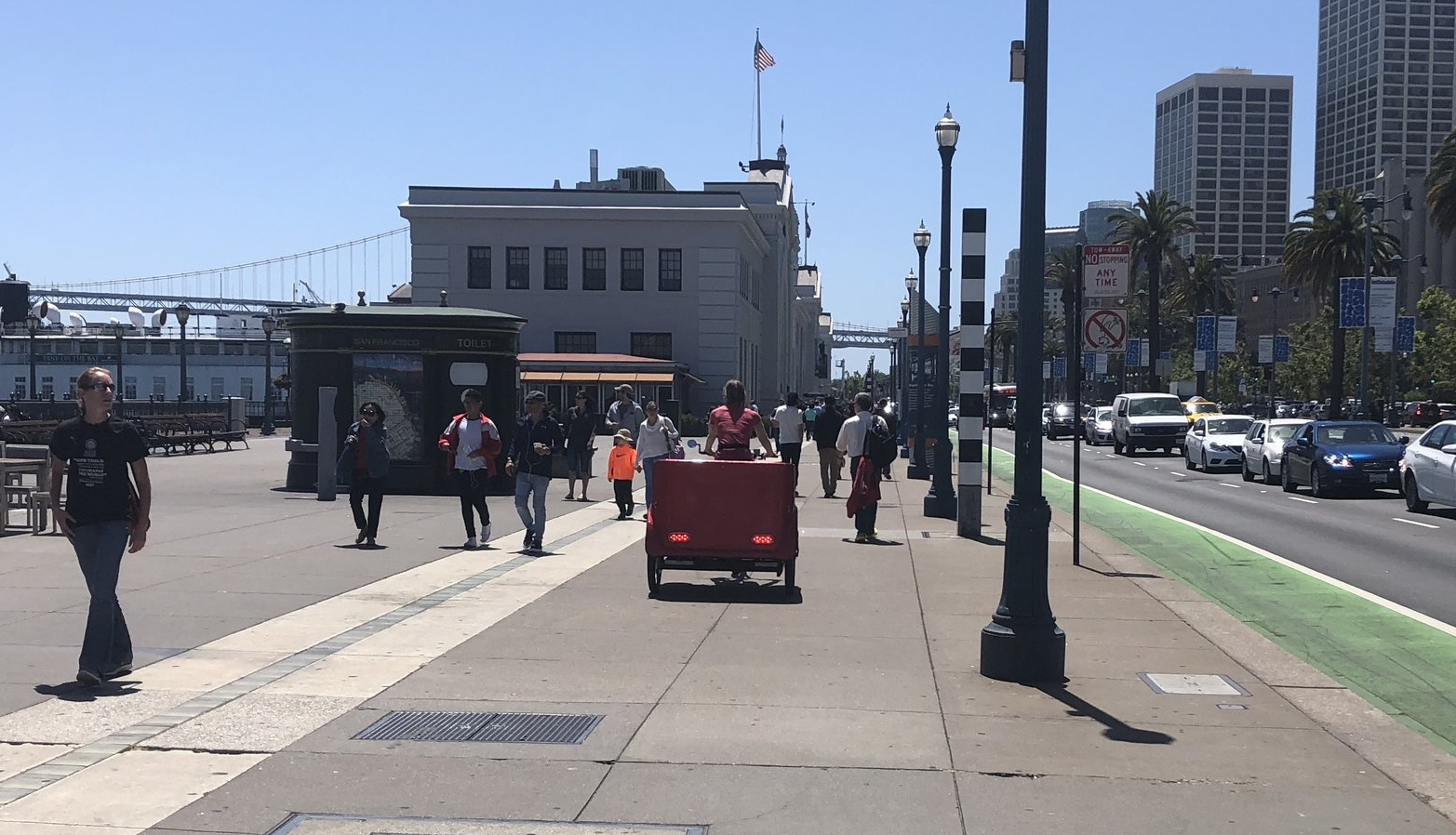Go ahead, ask. What's the worst that can happen?
Today's story was a follow up to yesterday's hit-and-run crash that left a pedicab driver hospitalized. When I got the assignment, there wasn't much new - the morning shows had pretty much repeated what we knew the night before - someone hurt, passengers OK, hit-and-run driver still on the loose. So, there were plenty of possibilities to expand the story. Who was the driver who was hurt? How was he doing? What happened to the passengers? Was there any surveillance video (surely there was, because this was on the Embarcadero, one of the busiest streets in San Francisco)?
Based on that, I had my three basic elements to a story:
- So what (what difference does it make): a hit-and-run driver on a busy street is dangerous - people want to know if that person has been caught.
- Real people (the people living the story): the home run would be the pedicab operator, but he was hospitalized, so that was extremely unlikely. Instead, how about his colleagues and if they're going to do anything differently after the crash.
- Show me, don't tell me (video): this was a little bit harder. Yes, I had yesterday's crime scene, which was good, but for new video, besides pedicabs driving by today, I didn't have much. After the hospital interview, the best I could hope for was surveillance video.
The pedicab driver I tracked down to start the story.
So this was one of those days where you just head out to see what you can find. I decided to drive up and down the Embarcadero until I found a pedicab driver I could talk to. Easier said than done on a busy street. Within a few minutes, I saw one, but she was on the other side of the street. At least she was headed in the same direction I was. So I went a few more blocks, did a u-turn, parked and hopped out as she rode toward me. She knew right away what I wanted to talk about, and forwarded me to her boss at Cabriotaxi. "Go ahead, ask. What's the worst that can happen?"
I found the boss, and was able to conduct an interview with one of the injured driver's colleagues. As the interview was wrapping up, I asked the colleague about the injured driver's family. He said he had a daughter.
"Where does she live?"
"I don't know."
"What does she do?"
"She runs a cupcake company."
"What's it called?"
"I'm not sure. Some play off the James and the Giant Peach movie."
Google search: "cupcakes + James and the Giant Peach" yields: James and the Giant Cupcake.
I didn't have time to go to conduct that interview before my 5 p.m. deadline, but the night crew was able to line up an exclusive interview with the daughter based on that information. "Go ahead, ask. What's the worst that can happen?"
My idea of surveillance video from the police was met with furrowed brows in the newsroom. The San Francisco Police Department and the local media don't get along that well. But I thought it was worth a try. So I sent an email asking for the video and any other new information about the case. I'm sure my request was one of dozens, but by 3 p.m., the police department had sent out a press release and surveillance video from a public transit trolley. Again, my email was surely not the catalyst for this, but "Go ahead, ask. What's the worst that can happen?"
How many screens does a reporter need?
I edited in the newsroom today, because I used a lot of file and internet video for the story. Believe it or not, that actually makes the job more difficult. When you have to use video from other sources, it takes a lot more time to request and download and organize. Sure, shooting it yourself means lugging the tripod and the camera and the microphones, but you know what you've got and what you don't. A lot of MMJs will tell you this: while working alone has some disadvantages; one big advantage is you're in control of everything. There's no need to review video, no need to make sure it's in the right format, no need to deviate from your routine.
Takeaways:
- Doing it yourself can be easier.
- Go ahead, ask. What's the worst that can happen?


